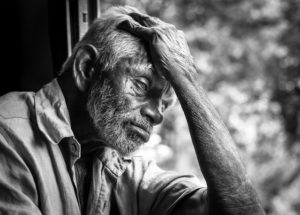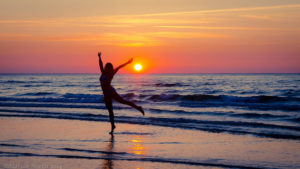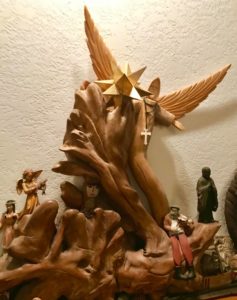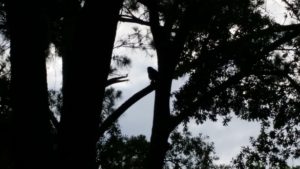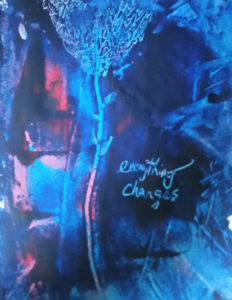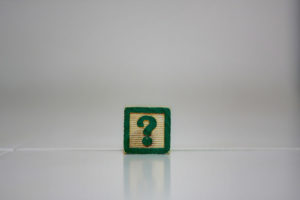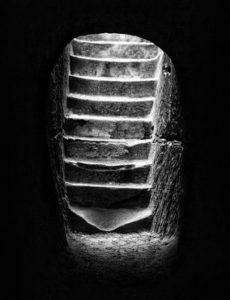by Roger Sessions
October 28, 2018
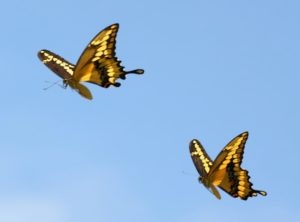
Recently a rift has become visible in our community of love. This rift is not new. It has been there since the founding of Meditation Chapel. But it was made especially visible on October 26 when four of our longtime and very dear facilitators told us they will no longer participate in Meditation Chapel. We were left, and are still left, scrambling to fill their leadership void.
It is important to examine this experience, learn from it, and become stronger as we move forward. The rift originates in a fundamental difference in philosophy between WCCM (World Community for Christian Meditation) and Meditation Chapel. This is the difference between Contemplative Exclusivism and Contemplative Pluralism. Let me define what I mean by these terms.
Contemplative Exclusivists are those who look to only one source of truth and one interpretation of that truth. They don’t reject other sources and other interpretations as being invalid for other people, but for them, there is only one well from which they drink. Anything that is not from that well is excluded. Exclusivism does not mean that people are excluded from the group, it just means that there is one exclusive wisdom source that grounds the group. This is a well tested model and has been used by many contemplative communities for thousands of years.
Contemplative Pluralists are those who believe that there are many sources of truth and many interpretations of those truths. They don’t reject the Contemplative Exclusivist wells, but for them, these different wells are synergistic rather than exclusive. This is a much newer model, and seeks to leverage the capability of the Internet to access many wisdom sources and bring together people from many different faith traditions.
WCCM is at its heart a Contemplative Exclusivist organization. Its exclusive source of truth is the teachings of John Main and the ultimate mediator of those truths is Laurence Freeman. This philosophy is explicit in the constitution of WCCM, which says its mission is
to communicate and nurture meditation as passed on through the teaching of John Main
That same constitution defines the role of the Director (Laurence Freeman) as
the person recognized as having a particular charism in communicating the vision of John Main and is empowered by the Community and its governing structure to guide and advance the teaching of Christian meditation.
Meditation Chapel is a Contemplative Pluralistic organization. We love the teachings of John Main and we think Laurence Freeman is a great communicator of those teachings. But we also treasure the teachings of Thomas Keating, Joan Chittister, Richard Rohr, as well as the great mystics from our non-Christian sisters and brothers. This philosophy is embedded in our vision statement, which says
Meditation Chapel nurtures unity and world peace through the sharing of divine stillness and sacred listening. We support groups of all faith traditions in offering and sharing the contemplative experience through the sacramental use of technology.
Meditation Chapel was started by WCCM Oblates. As Oblates, we commit to promote the vision and goals of WCCM. Yet our vision statement can be seen as rejecting core facets of the WCCM constitution. It is easy to see why a small but vocal subset of the WCCM community look upon Meditation Chapel as heretical. From their perspective, it is.
As the last year has unfolded, we have become more and more committed to the pluralistic vision. We now have two contemplative communities meeting and sharing wisdom in Meditation Chapel: WCCM and Contemplative Outreach. Those of us who have experienced the richness of this sharing are not likely to go back to our exclusivist roots regardless of how wonderful those roots were at the time. Far from wanting to limit our perspective in the future, we thirst to expand it even further.
From the perspective of those in WCCM who are Contemplative Exclusivists, we have become even more heretical, and the rift seems to have deepened.
As one response, WCCM has launched a new website offering an online meditation experience. At one level, this looks like direct competition with Meditation Chapel, But I see it differently.
I see the WCCM offering as a potential healing of the rift. Now we can offer a choice. Those who feel the Main/Freeman path is the exclusive path they want to experience have a place to exclusively experience that path. It is the WCCM meditation website. Those who believe the Main/Freeman path is one among many nurturing wisdom paths have a place to to be exposed to all of those paths. It is Meditation Chapel.
From my perspective, the launching of the WCCM meditation website helps us establish our identity. We are Contemplative Pluralists. We can hold up that banner high, knowing that our table is open to all people from all wisdom traditions.
So for those who feel the exclusivist vision speaks to them and would feel more comfortable on the WCCM meditation website, we send you forth with our love and our blessings. You can find that website at https://www.onlinemeditationwccm.org/.
For those of us who have found a home in the pluralism of Meditation Chapel, we will continue to support that vision of pluralism with new vigor, new commitment, and an ever expanding embrace.
Of course, we welcome all WCCM groups that share our commitment to pluralism to continue as treasured members of our Community of Love. And regardless of where you are finding your silence, we honor it and we honor you.
Peace and love to you all,
Roger Sessions

